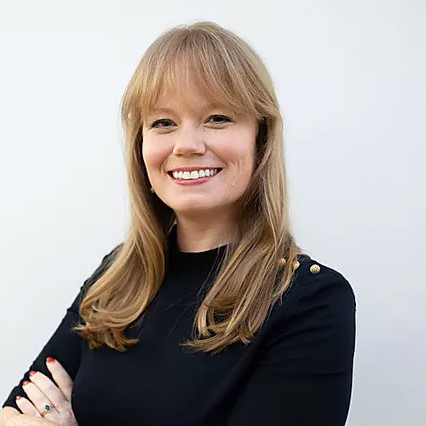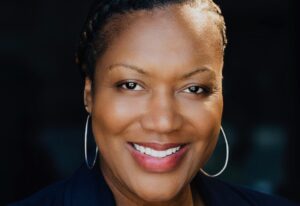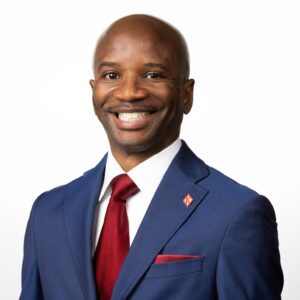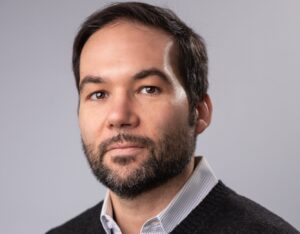6 questions with: Grace Keith Rodriguez of Caliber Corporate Advisers
Grace Keith Rodriguez shares how advice from her parents helped her embrace a nontraditional path into PR and beyond.

Caliber Corporate Advisers President Grace Keith Rodriguez has over 10 years of expertise in fintech and financial services.
Rodriguez’s insights have been featured in reputable publications like The Wall Street Journal. Additionally, she played a vital role in facilitating Caliber’s acquisition of Leverage PR, based in Austin, in 2017, efficiently coordinating efforts between teams in Austin and New York.
The president of the communications and marketing agency is passionate about working with clients who are making a positive impact every day, addressing issues like racial bias in housing valuations and modernizing financial infrastructure. The satisfaction of collaborating with intelligent and talented individuals drives Rodriguez’s dedication to the job.
We caught up with Rodriguez to get her take on the future of the communications industry.
What book, podcast or other media do you recommend to other comms pros?
My path to PR has not been a traditional one as I studied economics in undergrad and found a love of PR in my first job. This turned into an opportunity to learn the art of PR on the job and here we are many years later (I won’t date myself!). Because of this non-traditional path, I tend to read and listen to a pretty varied list of publications. Harvard Business Review is always top on my reading list as it helps me connect the dots between data and people on a lot of fronts, from building a team to new ways to look at hiring and client relationships. On the comms front specifically, I am a big fan of the Axios Communicators newsletter. It’s a great, enjoyable read and gives me a good bit of intel into challenges and opportunities other PR pros are tackling across other industries.
What’s your favorite tool you use regularly for work?
As a communications pro, it’s probably not a surprise that any sort of communication tool is my go-to – whether that’s a quick Google chat message to talk about the media win of the day or one of our virtual ‘LunchBunches’ where I get to sit down with a smaller group of Caliber folks to chat over lunch about what we did over the weekend or their next big trip. Any tool that allows easier communication with my teammates and clients is something I’ll continue to use every day! We also do a lot of work at Caliber to support and guide our clients’ presence at fintech & financial industry events. We developed a tool called Event Analyzer that helps our team and clients make data-driven decisions when it comes to speaking at, sponsoring or attending fintech and financial services events. This analytical approach gives clients even more confidence when investing their greatest assets – time and money.
What excites you most about the future of communications?
I’ve been excited to watch the role of the communicator continue to rise in importance to really have a seat at the decision-making table, particularly in the last few years as we’ve seen how critical comms is to the success of any business – no matter sector or size. The communicator’s seat at the table is something that I see as critical to the future success for a company, whether it’s to stress test new messaging or to ensure a difficult message is conveyed to all the right parties in the right manner or to help navigate a potential crisis scenario.
What communications challenge keeps you up at night?
As the mom of a toddler and a five-month-old, I’m not sure I’d blame a comms challenge for keeping me up at night these days! But since I’m usually up at night anyway, I regularly worry about how we continue to show the true art of comms on a regular basis. While I think technology certainly has a role in supporting research and other administrative aspects of the day-to-day job of a PR pro, the beauty and art of that one pitch that gets that one journalist interested that brings the client that spotlight they deserve is harder to define and quantify. The quality of the media will always be important and it’s important to continue to look for ways to define the value of that quality as success should be measured on both quantity and quality.
What’s the biggest challenge you’ve overcome in your career?
Being a mom to two young kids while also managing the growth of our agency from a talent and client perspective has been a challenge. I’ve now had two parental leaves in my time as President at Caliber and with each one I’ve not only forced myself to focus on my growing family and their needs, but I’ve also been truly floored by the support I’ve gotten from my teammates in my absence. I’m fortunate to have a very supportive husband and family that is right there with us in the throes of toddler and infant chaos. With several other Caliber team members in various stages of parenthood, I can say it’s immensely helpful to just share what’s really going on in our lives outside of the virtual walls of the office. Having a support system at work and at home is something I’ll never take for granted!
What is the best advice you’ve ever gotten?
My parents always encouraged me to just be myself – which of course as a teen you never want to hear, but as an adult I can say it’s the best advice I’ve ever gotten. In the early days of my career, I focused a lot of time and energy on what it meant to sound, look and act like a quintessential PR professional. Once I focused more on being curious and embraced the benefits of my non-traditional path here, I enjoyed what I did even more, and I found my conversations with other team members and clients felt more genuine and authentic. I may still need to look up some PR nuances they teach in comms school these days, but I can jump in to help translate an economic report or data in a spreadsheet to a group of journalists in a heartbeat.
Isis Simpson-Mersha is a conference producer/ reporter for Ragan. Follow her on LinkedIn.







